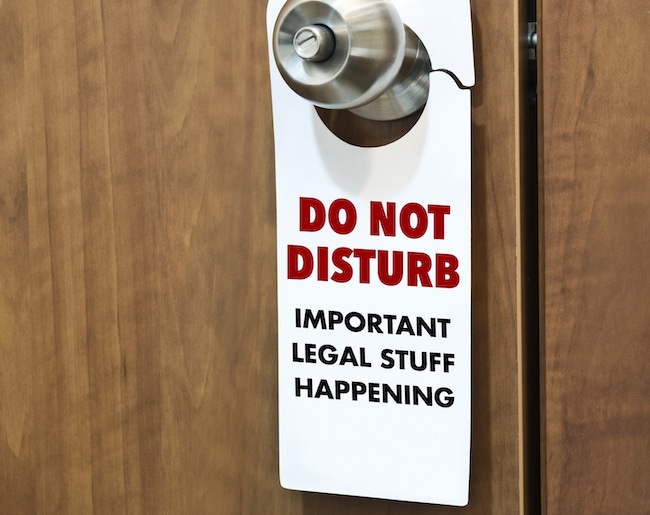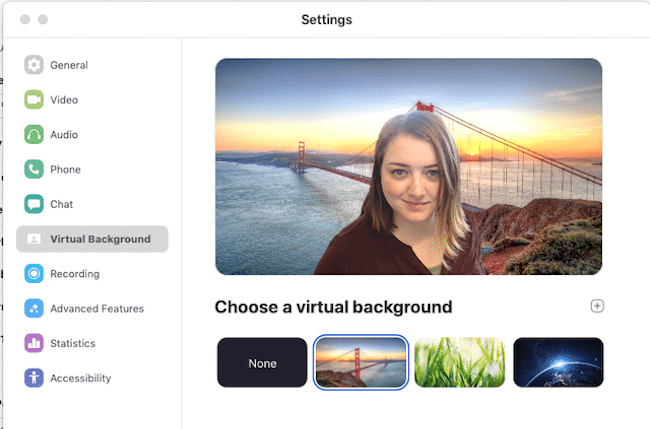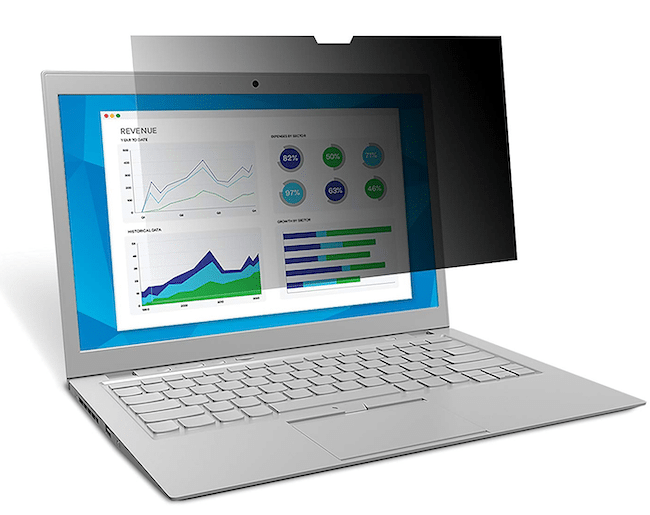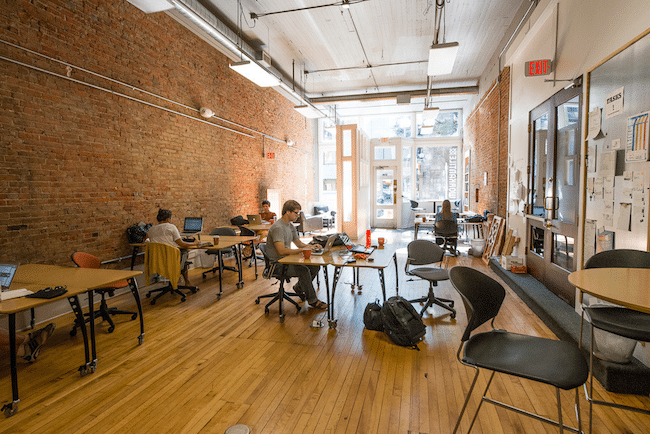Menu
August 19th, 2019
By: Katherine W. Dandy, J.D. (TMF Writer)
So you’ve made the decision to start your own practice. Or, your current practice is changing and it’s time to reevaluate your office setup. Deciding where to hang your proverbial shingle is one of the most important decisions you’ll make.
Should you work from home or a private office? Or maybe a coworking space is a more appealing option for you? What about an executive suite? The good news is that in today’s digitally-connected world you can set up shop almost anywhere. As you consider the various options, there are some technical do's and don'ts you should keep in mind, as well as important business and social concerns to take into account. Ultimately, it will be a balancing test—how to keep overhead reasonably matched with the scale of your practice while ensuring that you have a private, secure and enjoyable workplace where you can be productive, network with other professionals and meet with your clients.
Location, Location, Location: It Matters to Your Clients and to Google
First things first: wherever you decide to work, you will need a business address. For both professional and safety reasons, you should not use your home address. Nor is a post office box ideal, as it suggests that you lack the stability of an established office, which could hurt your credibility with new clients. Also, with a post office (P.O.) box you won’t have anyone to sign for packages.
A private mailbox (PMB) could be a good option, as it gives you an actual street address (such as the UPS store where you are renting the PMB), and a place to accept packages. Some coworking spaces include mail and package-handling services. With an executive suite, there is often a shared receptionist or staff person who can accept mail. Your business address will be the suite, but you want to be sure that your practice has its own dedicated address, including the suite number and your office number, if applicable. This is where the issue of Google comes into play.
Attorneys who are able to work “virtually” or from home offices don’t have a clear place in Google’s schema. If you hope to come up in the local map results (when someone Googles for legal help in your area) or on the right side of the results page, as a business with a Google page (including Google reviews and directions to your office), Google wants businesses to have a unique, public, physical address.
P.O. boxes do not count as physical addresses so they do not show up well in Google local search results. PMBs can be hit or miss with local search, but generally fare better than P.O. boxes. Google is not a big fan of coworking spaces because so many businesses are globbed together at a shared address without a unique identifier, such as a suite number, for each business. Executive suites that give each tenant a unique suite number as well as private offices fit well into the Google mold, and have few, if any issues with business listings. Private office suites and stand alone buildings have no problem with Google listings at all.
Law firms are also considered “local business” by search engines, so proximity is taken into account. For example, Google may favor law firms that are located near the hub of legal activity in a city, such as a courthouse. Or it may give preference to firms located more near the center of a city versus those in the suburbs.
So if you want to show up in searches for “newport ky divorce attorney,” you’d do better out of the gate if your office was actually in downtown Newport rather than the suburbs. That said, mobile searches for lawyers consider the GPS location of the phone being used. So if you want to do estate planning for well-to-do people, it may be better to locate your practice in an affluent suburb. Of course, finding office space in these prime areas will be more costly, but may be a worthwhile use of your marketing dollars.
Let’s return to the question at hand: What kind of office is best for you and your practice?
Working From Home: It’s cheap; it’s quiet; you can do conference calls in your PJ’s.
A home office can be a great choice, especially if you are just starting out in practice and have a tight budget, or towards retirement, when you may want to cut back on your hours and your overhead.
To successfully work from home, you should have a dedicated work space (i.e., not the dining room table), and whether you live alone or with family, it is important to establish boundaries such as specific working hours when you should not be disturbed. For kids (and adults) in the house who don’t have a grasp of time, physical barriers are good too, such as closing your door, or putting up a sign.
Try to minimize distractions; my home office is dangerously close to the kitchen, but it does come in handy when I am trying to multitask. The good news for home offices is that numerous online solutions are available to help you do your work, including tools for video conferencing, content sharing, messaging, and scheduling. Some video conferencing services, such as Zoom, even allow you to display a virtual background during your meeting so that you look like you’re in an office, or you know, wherever you want to be.
As appealing as it sounds—taking conference calls in your pajamas, a quiet and casual work environment—there are some downsides to working from home. You may feel isolated, particularly if your practice does not require a lot of face-to-face client contact. Setting up regular breaks and outings, such as lunch dates, or even walks around the block, will be helpful to your mental and physical health, as well as your productivity. And while it can be nice to have your family around, there is a risk of inopportune interruptions.
Working from home is, obviously, most desirable for those attorneys with a limited budget for overhead. For attorneys with an established practice, working from home may offer too much distraction and too little of the structure and amenities they are accustomed to.
Shared Space: The Coffee Shop Office
If you know that working from home will be impossible for you—too many distractions or not enough social contact—the next step is to take your laptop to a shared space, such as a library or coffee shop. You may be someone who works best with continuous background buzz. While you can easily write and email while sitting in a shared space, it gets tricky when you need to meet with clients or colleagues in person or participate in a video conference. Some combination of working from a shared space and working from home when needed may be the solution.
When working in a shared space, be sure to protect the confidentiality of any client documents you are working on. Consider a privacy filter on your laptop screen, and be extraordinarily diligent about protecting the security of physical documents.
Coworking Space: A Network of Knowledge
Coworking can be a great upgrade from coffee shops and libraries. Here you’ll find options for dedicated or floating desks, maybe even private offices or room for a small team. The primary benefit of coworking is that you get plugged into a community of people who are looking for both social and professional relationships. Most coworking setups have flexible and short-term commitments so it is easy to scale up and down as needed.
Coworking space has both social and networking benefits. Often they are populated with people who are working remotely for their employer, are self-employed or are getting a new business off the ground. Each coworking location has its own vibe so it’s good to tour a few and try the ones you like out for a few days. Coworking with people in other lines of work gives you the social benefit of an office setting, without the usual office politics.
The downside to many coworking setups is the lack of privacy, as well as meeting space and storage, particularly if the space uses hot desks (the process of allocating desks to workers as needed, rather than each worker having a permanent desk). That said, many coworking companies offer flexible services, including private offices and access to meeting rooms, which you can tailor to your specific needs. As for document storage, there are multiple cloud platforms to choose from, such as Dropbox.
Like working from home or a shared space, coworking may appeal more to newer attorneys with more limited resources, and those whose work is conducted primarily through a screen. For more established attorneys and those who must regularly meet with colleagues and clients, a more traditional work space might be desirable.
Executive Suites: Shared Resources
If you are looking for a more professional environment, you might consider an executive suite. National companies like Regus, as well as countless local operators, lease furnished office space on a flexible basis (daily, weekly, monthly, yearly). While more expensive than a coworking space, your rent will likely include high speed internet, utilities, and access to amenities such as shared break areas, conference rooms, restrooms, lounge areas, fitness centers, and mail centers. Typically, each tenant will have their own designated mailing address. Here's a photo and link to a company we used for executive suites in Minneapolis.
An executive suite has many benefits, including shared resources, such as a receptionist or other staff, as well as built-in social and networking opportunities, depending on the other tenants. Moreover, many workspace companies offer flexible solutions, including part-time offices, conference space on demand, and virtual offices, so you be locked into a particular arrangement as your business grows and changes.
Sub-Tenant Office Space: Virtually an Executive Suite
Many solo and small firm lawyers also create a virtual executive suite for themselves by renting excess office space from another law firm. This can be a great way to affordably obtain private office space while sharing and benefiting from some of the resources the office owner has created.
Beware, though: we have seen these types of situations create problems on Google. We recently had to unravel a situation for a client who sublet an extra office to a savvy attorney who was marketing aggressively online. Since they were sharing the same address, Google started to give the subtenant more visibility in local search, effectively bumping the more established firm (and owner of the building) from search results.
Dedicated Private Space: Complete Control
A full-time dedicated office is the best option if you want a private, professional atmosphere for your practice and private offices, along with executive suites, are the most common types of law office setups. Whether you rent first, to be sure the location is right for you, or buy, having your own office gives you credibility and gravitas, not to mention being a point of pride for any lawyer. Moreover, you won’t have to worry about client confidentiality, privacy, or storage issues. Having a dedicated, secure space to conduct business and to call your own can also do wonders for productivity.
The downside to a private office is that it’s all on you. There is administrative, emotional, and financial overhead required to set up utilities, internet, phones, break rooms, reception area, security systems, furniture, cleaning and more. This all needs to be considered when weighing the true cost of having your own office.
How Will I Decide?
While a home office may make financial sense when you are first starting out, it is likely that in the long run you are going to want a physical office. The good news is that there are so many flexible solutions out there, you can change your office arrangement as your business develops. That said, moving offices can be a challenge; you want to be sure to plan ahead so that clients and contacts can find you (both online and in person) in the event of a move.
At various points in our history, The Modern Firm has used most of the options listed above, either alone or in combination with each other. Depending on where you are in the life cycle of your practice, and personal life, your needs and priorities will evolve, too, as does the professional landscape in general. Where once an attorney working from home would have been highly suspect, such arrangements have become much more common and acceptable.
The bottom line is that it’s all about balancing your needs, including the need to, well, keep your bottom line balanced. When you first start out, keeping overhead low will be key, but you should balance this with the practical need for a private and secure workplace where you can be productive, network with other professionals and meet with your clients. Any of these options may work for you, but you may be able to get the best of both worlds with some combination, such as a private office that is connected to a coworking space. As you contemplate your future office, get in touch with yourself to identify how you do your best work. Then, make a list of your specific needs and wants. Chances are, there is a solution out there that will be a perfect fit.
Categories: Question of the Week












